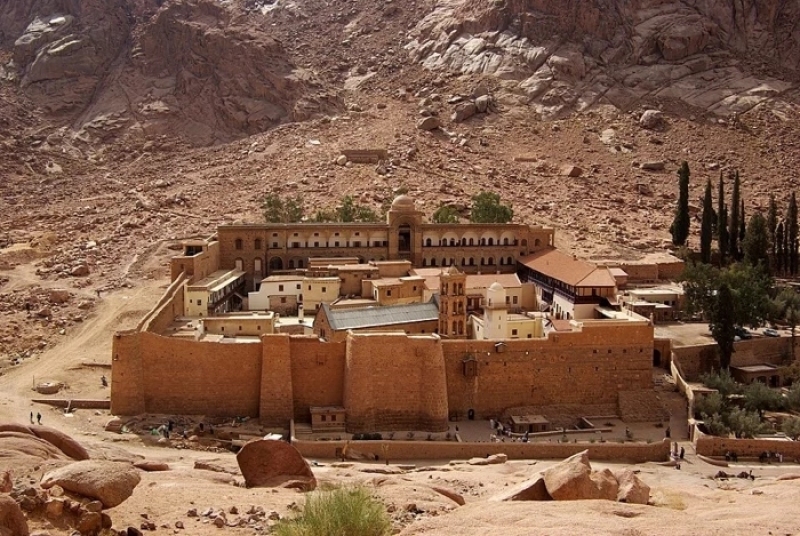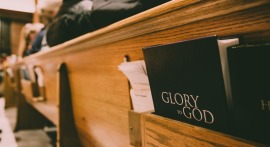
A recent ruling by an Egyptian court transferring ownership of one of the world’s oldest monasteries to the state has sparked widespread international criticism from Christian leaders and advocacy organizations.
This week, Greek Foreign Minister George Gerapetritis met with his Egyptian counterpart, Badr Abdelatty, in Cairo to discuss the contentious ruling on Saint Catherine's Monastery, which has raised fears that the Greek Orthodox monastery located at the foot of Mount Sinai might be shut down and turned into a museum.
Mount Sinai, a site revered across Jewish, Christian, and Islamic traditions, is believed to be where God spoke to Moses through the burning bush and where Moses received the Ten Commandments. It has been a pivotal location in Christian theology and pilgrimage for centuries. The monastery itself is considered one of the oldest continuously operating religious institutions in the world.
A statement from President Abdel Fattah el-Sisi’s office last week reaffirmed Egypt’s “full commitment to preserving the unique and sacred religious status of Saint Catherine's Monastery and preventing its violation.” However, concerns remain that the court’s decision could undermine these assurances.
According to The Telegraph, the court ordered that the land owned by Saint Catherine’s Monastery—established between 548 and 565 by Byzantine Emperor Justinian I and recognized as a UNESCO World Heritage Site—be placed under Egyptian state ownership. Despite the president’s public pledges, Christian leaders have expressed alarm over the ruling and the ambiguity surrounding its implementation.
Archbishop Ierenemos II of Athens and All Greece condemned the Egyptian court's move, stating, “Following yesterday's scandalous ruling, a violent infringement of human rights and, more specifically, of religious freedoms by Egypt's judicial authorities, the world's oldest Orthodox Christian monument, the Monastery of Mount Sinai, is entering a period of great trial — one that evokes memories of darker times in history.”
He urged the Greek government to intervene immediately to prevent the monastery from being "effectively abolished." The monastery's library contains a vast collection of ancient Christian manuscripts, Byzantine religious art, mosaics, and icons considered irreplaceable. There is growing concern that any move by the state to convert the site into a museum could jeopardize these treasures and the spiritual community associated with the monastery.
The court’s decision is seen as a grave threat to Saint Catherine’s independence and its historic rights, according to a statement by In Defense of Christians, a U.S.-based advocacy group dedicated to protecting Christians and other religious minorities in the Middle East.
“IDC stands with the faithful who worship and serve at Saint Catherine's Monastery, and with our entire Greek Orthodox family,” said IDC executive director Richard Ghazal. He added, “We call on the U.S. Government to exercise diplomatic influence to urge the Egyptian government to reverse this unjust ruling and to safeguard the rights of Christian communities in Egypt.”

















